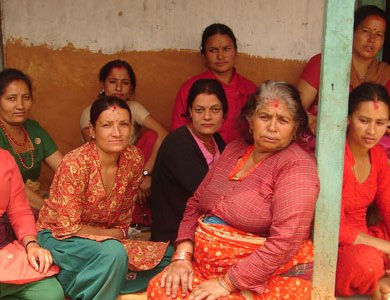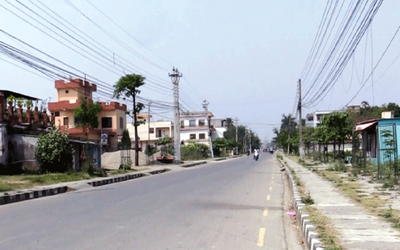
Nepali women experience less partner violence, both physical and sexual, than in Bangladesh and India, according to a new report.
India has been ranked second among thirteen Asian and Middle Eastern countries in terms of number of women experiencing partner violence, according to the Guttmacher-Lancet Commission's report on sexual and reproductive health and rights.
According to the report, Bangladesh has the highest number of women who have faced partner violence, while Singapore has recorded the least number of such incidents.
Nepal fares better than India in terms of women experiencing partner violence, the report said. Pakistan also fares better than India, but data for that country has been given only for the last 12 months.
The violence can take different forms, physical, sexual, or psychological, and it encompasses harmful practices, such as child marriage, sex trafficking, honour killings, sex-selective abortion, female genital mutilation, and sexual harassment and abuse.
Goal 5 of the Sustainable Development Goals (SDGs) includes targets calling for the elimination of violence against women and all harmful practices, such as child, early, and forced marriage, and female genital mutilation by 2030, the report said.
The report states that in India, where law reform in 1971 permitted abortion under a broad criteria, most abortions did not meet legal requirements by 2015.
Abortions have become safer in some developing countries where grounds for legal abortion have been expanded.
The report stressed that improving health depends not only on implementing effective programs, but also on advancing rights, including those frequently neglected in global discussions, such as the right to freely choose sexual partners and the right to safe and legal abortion care.
It also called on countries to tackle restrictive social norms, laws and policies, and to hold governments accountable to their commitments.
The commission also underscored the importance of gathering more evidence on the sexual and reproductive health needs of distinct populations that are often marginalized and vulnerable, including adolescents, people with diverse sexual orientations and gender identities, displaced people and refugees, and people living with disabilities.
- Nepal Army Held National Cyber Security Symposium
- Apr 26, 2024
- Nepal’s Investment Landscape Revitalize By Nine Ordinances: FNCCI President Dhakal
- Apr 26, 2024
- Weather Forecast: Partly Cloudy In Hilly region And Mainly Fair In Plain Areas
- Apr 26, 2024
- Nepal-China Aid Project Meeting Held In Lhasa
- Apr 25, 2024
- Ambassador Subedi Presented The Letter Of Credence To President Of Italy
- Apr 25, 2024
















